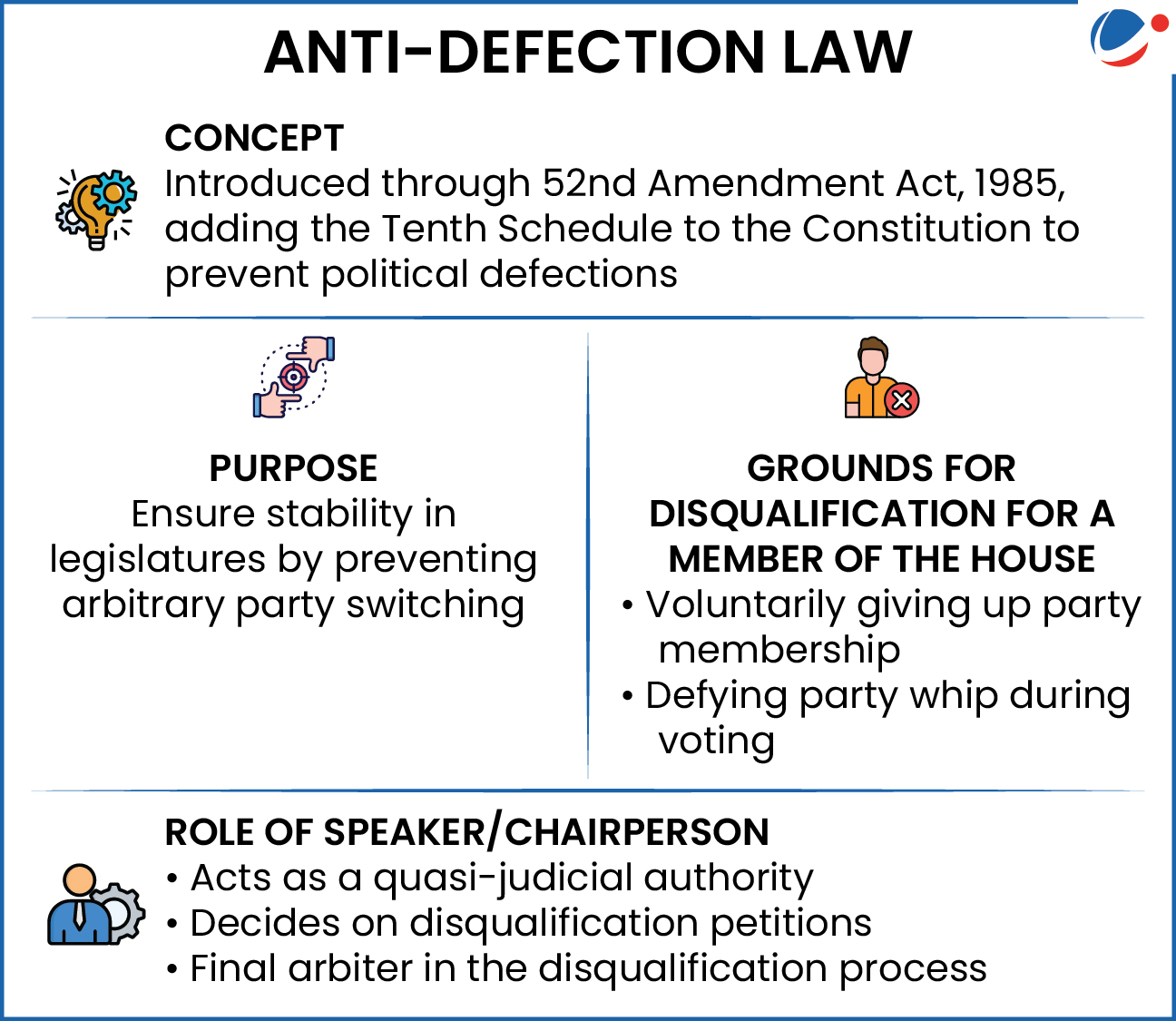The SC said Speaker could not use his indecision to defeat the worthy objective of the Tenth Schedule (anti-defection law) of the Constitution.
- Question of Law in front of Supreme Court: Can constitutional courts direct Speakers, acting as quasi-judicial tribunals, to decide anti-defection disqualification petitions within a specific timeframe?
Supreme Courts Observations

- Court’s Power Over Speaker’s Inaction: The SC stated that it is not “powerless” if Speaker remains “indecisive” on disqualification petitions.
- Court’s Right to Set a Reasonable Timeframe: While courts cannot dictate the outcome of a disqualification petition, they can direct the Speaker to decide within a reasonable period.
- E.g., Keisham Meghachandra Singh v. Speaker, Manipur Legislative Assembly (2020).
- If the Speaker fails to act: The SC can invoke its extraordinary powers under Article 142.
Other SC Observations to Improve Implementation of Anti-Defection Law
- Judicial Review Over Speaker’s Decisions: Courts should have the authority to intervene if the Speaker delays action. Case: Kihoto Hollohan v. Zachillhu (1992).
- Impartiality of the Speaker: The Speaker should act as a neutral adjudicator rather than a political figure. Case: Ravi S. Naik v. Union of India (1994).
- Independent Tribunal for Disqualification Cases: Consider transferring disqualification powers from the Speaker to an independent tribunal. Case: Karnataka MLAs’ disqualification case (2020).




